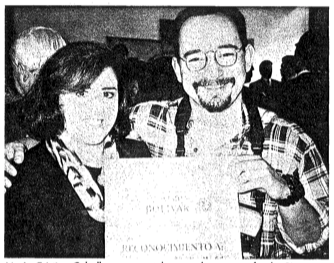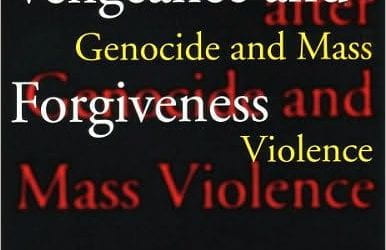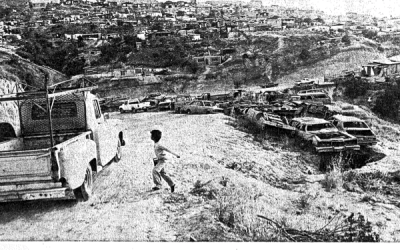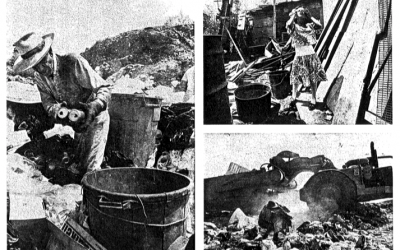Caballero wins Colombia’s top journalism prize

Maria Cristina Caballero poses at the award ceremony for the Simón Bolivar National Prize with photographer Bernardo Peña, who accom- panied her on the interview with paramilitary leader Carlos Castaña.
Building on work she started at the David Rockefeller Center for Latin American Studies, investigative journalist Maria Cristina Caballero has won Colombia’s top journalism prize.
Caballero’s exclusive interview with the most-wanted man in Colombia in December 1997 yielded a startling revelation: Carlos Castaño, leader of the paramilitary forces that make up one of the most violent factions in Colombia’s guerrilla war, was ready for peace talks. The scoop was widely recognized as an important breakthrough in the four-decade-long civil war pitting Castaño’s paramilitaries against two Marxist guerrilla groups, and the government against all of those factions.
The interview also pointed the way to another important piece of journalism: five months after her December scoop, Caballero published a special report showing that the political goals of the forces in conflict were very similar, according to their own never-before-published written plans for peace. That May special report in the newsmagazine Cambio 16 – published with the support of the International Red Cross and the National Commission of Conciliation – was praised by a competing newsmagazine, Cromos, by Colombia’s leading daily paper, El Tiempo, and was the subject of the main story in The New York Times’ international section. Bishop Alberto Giraldo, president of the National Commission of Conciliation, called a press conference to point out the importance of the report.
Caballero, who mostly wrote about drug trafficking and official corruption before coming to Harvard for a Nieman Fellowship in 1996, credited discussions at the David Rockefeller Center for her focus on trying to find new ways to understand and resolve Colombia’s conflict. Caballero led the organization of the Center’s May 1997 conference, “Law and Democracy in Colombia.” The conference was attended by 350 professors, students and researchers, not only from Harvard, but from many other institutions interested in Latin America.
“After the conference on Colombia at the David Rockefeller Center, I thought that if all of the forces in conflict could talk with one another, many of my country’s problems could begin to be solved,” Caballero said. “When I told Castaño about this conference at Harvard, he was very moved that people at the university were discussing Colombia’s problems, because he has a lot of respect for Harvard. Then he agreed to write down, for the first time, his peace proposal.”
On Sept. 1, Caballero was awarded the Simon Bolivar National Prize, Colombia’s equivalent of the Pulitzer Prize, for the best interview of the year 1997. She received the prize from Mexican novelist Angeles Mastretta at a ceremony attended by a “Who’s Who” of Colombian journalism and government, including Vice President Gustavo Bell.
Caballero, who was selected by the Nieman Foundation and the Center for Public Integrity in Washington as a charter member of the new International Consortium of Investigative Journalists, is working on a book about the Colombian conflict, while also serving in a new position as director of investigations for Semana, the leading Colombian newsmagazine. “It’s hard to write a book in addition to having a very demanding job, but I think the book is very important for allowing both national and international readers to understand what has really been going on in my country,” she said.
Fall 1998
John Lenger is assistant director and editor-in-chief of the Harvard University News Office.
Related Articles
Between Vengeance and Forgiveness
At the close of this century of death camps, killings fields and desaparecidos, there is perhaps no more urgent question than the one raised in Martha Minow’s useful new book: Can societies…
The Environment in Latin America
This issue of the DRCLAS NEWS deals with some of the environmental problems of Latin America, one of the priorities of the David Rockefeller Center for Latin American Studies…
The Urban Environment
Urbanization has transformed Latin America over the last forty years. Its cities, always diverse and lively, have now also become chaotic and centers of social conflict. Millions of subsistence…




